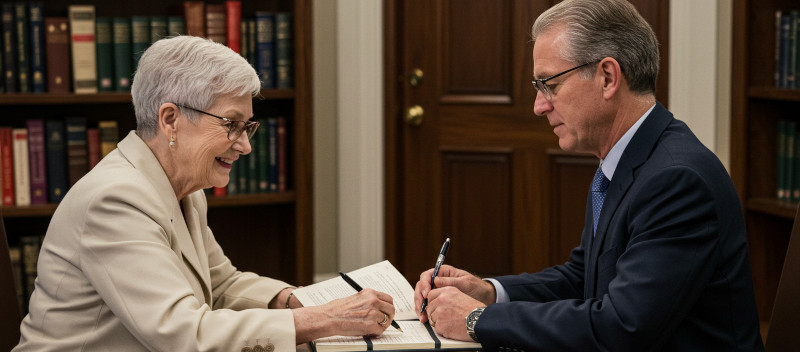
-
Jump to Section1 Summary2 Overview3 Common Challenges4 Step-by-Step Process5 FAQs6 Expert Tips7 Related Resources Summary Probate mediation is an invaluable tool for resolving heirship disputes, offering an alternative to traditional litigation. Mediation can help heirs reconcile differences, save time, and…
-
What Happens If Heirs Are Found After an Estate Has Closed?
Learn how to handle heirs found after an estate closes. Reopen probate, verify claims and reallocate assets to stay compliant and avoid disputes.
-
When Should Attorneys Seek Court Approval for Professional Heir Search Fees?
Avoid estate fee battles. Find out when attorneys need court approval for heir search costs in probate. Get clear steps, state law tips & expert insights.
-
How Do Courts Handle Disputed Family Trees During Probate?
Discover how probate courts resolve contested family trees: from evidence gathering to hearings, protect your client’s inheritance and avoid delays.
-
Can Probate Assets Be Distributed to Charities When No Heirs Exist?
Jump to Section1 Summary2 Overview2.1 Key Points to Consider3 Common Challenges4 Step-by-Step Process4.1 1. Evaluate the Estate4.2 2. Review State Laws4.3 3. Identify Potential Charities4.4 4. Document Intent4.5 5. File Appropriate Legal Paperwork4.6 6. Distribute Assets5 FAQs5.1 Can charities receive…
-
How Does the Law Handle Heirship in Multi-Generational Estate Disputes?
Jump to Section1 Summary2 Overview3 Common Challenges4 Step-by-Step Process5 FAQs6 Expert Tips7 Related Resources Summary Multi-generational estate disputes can arise when an estate is passed down through several family lines. Understanding how the law handles heirship in these complex situations…
-
What Are the Special Considerations for Finding Heirs in Military Families?
Jump to Section1 Summary2 Overview3 Common Challenges4 Step-by-Step Process5 FAQs6 Expert Tips7 Related Resources Summary Finding heirs in military families can be a unique challenge due to the complexities of military life, service-related deployments, and the interplay between military and…
-
How Can Digital Genealogy Tools Speed Up the Heir Search Process?
Jump to Section1 Summary2 Overview3 Common Challenges4 Step-by-Step Process5 FAQs6 Expert Tips7 Related Resources Summary Digital genealogy tools have revolutionized the way we approach heir searches by significantly speeding up the process and improving accuracy. From online databases that hold…
-
What Are the Legal Consequences of Incorrectly Identified Heirs?
Jump to Section1 Summary2 Overview3 Common Challenges4 Step-by-Step Process5 FAQs5.1 What happens if an heir was mistakenly excluded from the will?5.2 How can I ensure all potential heirs are identified?5.3 What are the risks of incorrect heir identification?5.4 How can…
-
How Does Probate Law Handle Heirs in Cases of Simultaneous Death?
Jump to Section1 Summary2 Overview3 Common Challenges4 Step-by-Step Process5 FAQs6 Expert Tips7 Related Resources Summary Probate law plays a crucial role in determining heirs when simultaneous deaths occur. This article explores the complexities of simultaneous death, legal standards, common challenges,…









